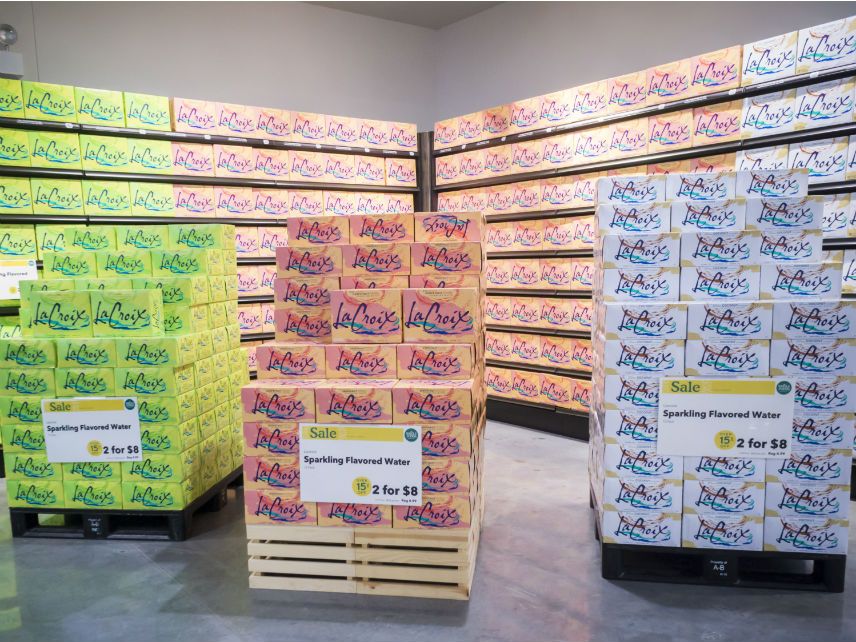A Lawsuit Says LaCroix Can't Be '100% Natural' Due to Naturally Occurring Chemicals
A lawsuit says that certain chemicals mean the sparkling water is not "all-natural."

LaCroix sparkling water boasts all natural ingredients, making it a popular and Instagramable alternative to sodas. In fact, its website explains that the "Natural Flavors" tag on its products comes from "natural essence oils extracted from the named fruit." Yet the company is now the defendant in a lawsuit over whether or not its natural label is misleading.
Lenora Rice is the lead plaintiff in a class action complaint against LaCroix and its parent company, National Beverage, alleging that the beverage could not be considered "all natural" as it contains chemical compounds that the Food and Drug Administration (FDA) has deemed synthetic or artificial. The compounds in question are ethyl butanoate, limonene, linalool, and linalool propionate. The suit also charges that the compounds have detrimental effects on health. For example, limonene can cause kidney toxicity and tumors. Linalool is used as a cockroach insecticide. Linalool propionate is a cancer treatment.
With names like those, it's easy to see Rice's concern. But, as it turns out, the whole lawsuit could be in bad taste.
Popular Science looked into some of the chemical compounds found in LaCroix. As its research indicates, limonene and linalool are "naturally occuring chemicals," the first being an oil extract from orange peels and the second being found in flowers and plants like cinnamon. As for the supposed side effects, evidence of limonene's carcinogenic effects are noted as "inadequate." Similarly, linalool's use as an insectide is not proof of toxicity towards humans. (The article compares this to the fact that we continue to consume chocolate even though it could cause serious harm to our four-legged companions.) Additionally, the magazine observes that branding linalool propionate's anticancer agents as negative is a tough argument to make.
While there are many reasons to dislike LaCroix, whether it be for its cultish following or because paying out of the nose for a lightly flavored beverage is not your dig, it would seem that its alleged toxicity is not a cause for dismay.
The lawsuit against LaCroix has certain similarities to another legal fight, one between the state of California and coffee. The state's Proposition 65 requires businesses to warn consumers if cancer-causing agents are present in their products. After learning that acrylamide was present in coffee, a Los Angeles County Superior Court judge ruled in March that coffee businesses, including large chains, would need to display labels that warned of carcinogens. The ruling has since been decried by both the FDA and California's Office of Environmental Health Hazard Assessment. Research has found that acrylamide was a byproduct of roasting coffee beans. Not only this, but a human would need to consume 35,000 cups a day to face a greater risk for developing cancer.
